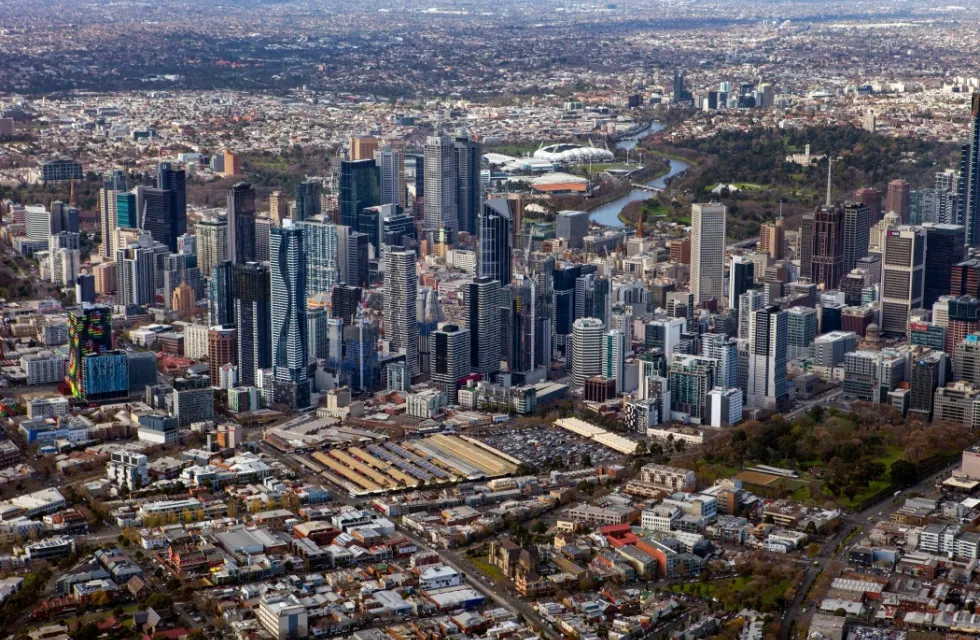Public recycling and litter bins
There are almost 450 solar smart bins, 230 public recycling bins, 2000 public litter bins and 500 cigarette butt bins around the City of Melbourne.
These bins are provided in strategic locations for the general public to dispose of litter and recycle items. They should not be used for the disposal of household and commercial waste and recycling. Find out more about our residential and commercial waste and recycling services.
Recycling bins are easily recognised. The new solar smart recycling bins are yellow and the standard public recycling bins feature a yellow recycling symbol on a blue background. Recycling bins are located next to general waste bins to make it easy for you to correctly dispose of your items.
What goes in recycling bins:
- glass bottles and jars
- plastic bottles
- aluminium and steel cans
- hard plastic containers, including take-away containers
- paper and cardboard
- take-away coffee cup lids.
Please do not put these items in the recycling bins:
- soft plastics, plastic bags, plastic wrap
- straws
- wooden cutlery, chopsticks
- polystyrene foam, foam cups, foam take-away containers
- take away coffee cup bases
- food scraps
- household and business recycling - residents and businesses are to use their own bins.
Solar smart bins
In high use areas of the central city we've introduced public solar smart recycling and litter bins. These new bins incorporate smart technology and help us deliver a more sustainable service. Look out for the twin solar bins placed in high use areas around the city – the yellow bin for recycling and the red bin for litter. Any solar bin that’s on its own is just for litter.
Benefits of solar smart bins
- Each bin is solar-powered and contains a sensor that alerts our contractors when it needs to be emptied (before the bin is full).
- The solar bins use a gentle compaction system which keeps waste in the bin and maximises bin capacity.
- The bins will take up less space on footpaths, reducing clutter and making it easier for people to move around the city.
- Significantly fewer waste trucks will be needed to empty the bins.
- Reducing the number of trucks in the city will substantially reduce carbon emissions and help reduce traffic congestion.
Cigarette butt litter
After smoking was banned in public areas (Tobacco Act 1987) and smoke-free buildings were introduced, the number of cigarette butts dropped on our streets increased.
We’ve installed more than 500 wall-mounted butt bins so smokers can dispose of their butts. Cigarette butts collected from these bins are recycled into practical items such as shipping pallets and plastic furniture. Many of our street litter bins also have an integrated butt bin.
We offer incentives for businesses to install butt bins on their property. Read more about cigarette butt disposal for businesses.
Fines for cigarette litter
It’s against the law to drop a cigarette butt and if you’re caught, you could receive an on-the-spot fine.
Businesses can also be fined for improper disposal of cigarette butts. Businesses must provide enough tobacco waste containers for staff and customers.
Tips for smokers
- Look for a wall-mounted butt bin outside shops and offices, butt bins or butt out plates on street litter bins.
- Carry a portable ashtray.
- Always butt out your cigarette before you put it in the bin to avoid a fire.
- When you use the butt-out plate on street litter bins, make sure the butt is out and then put it in the bin. If you leave the butt on the plate, it could blow away and become litter.
- Encourage your workplace and the businesses you visit to supply ashtrays.
Commercial waste
We are also using new technologies to manage waste and increase recycling for businesses throughout the city.
- Waste and recycling hubs have been introduced at key locations throughout the central city.
- At the Degraves Street Recycling Facility we collect recyclables and use a food ‘digester’ that converts food waste into environmentally safe water that flows into the sewerage system.
- We use a dehydrator to transform food waste into a soil conditioner which is used in our parks.
Reporting litter from a vehicle
If you see someone littering cigarette butts or other items from a vehicle or near a vehicle they are using, you can report it to the Environment Protection Agency (EPA)Opens in new tab.
Following a report, littering fines may be issued by the EPA:
- to an individual – $385 for a small piece of litter or $769 for a lit cigarette or burning litter
- to a corporation – $1923 for a small piece of litter or $3846 for a lit cigarette or burning litter.
If there is any danger to the public or public space, please call us immediately on 03 9658 9658.






